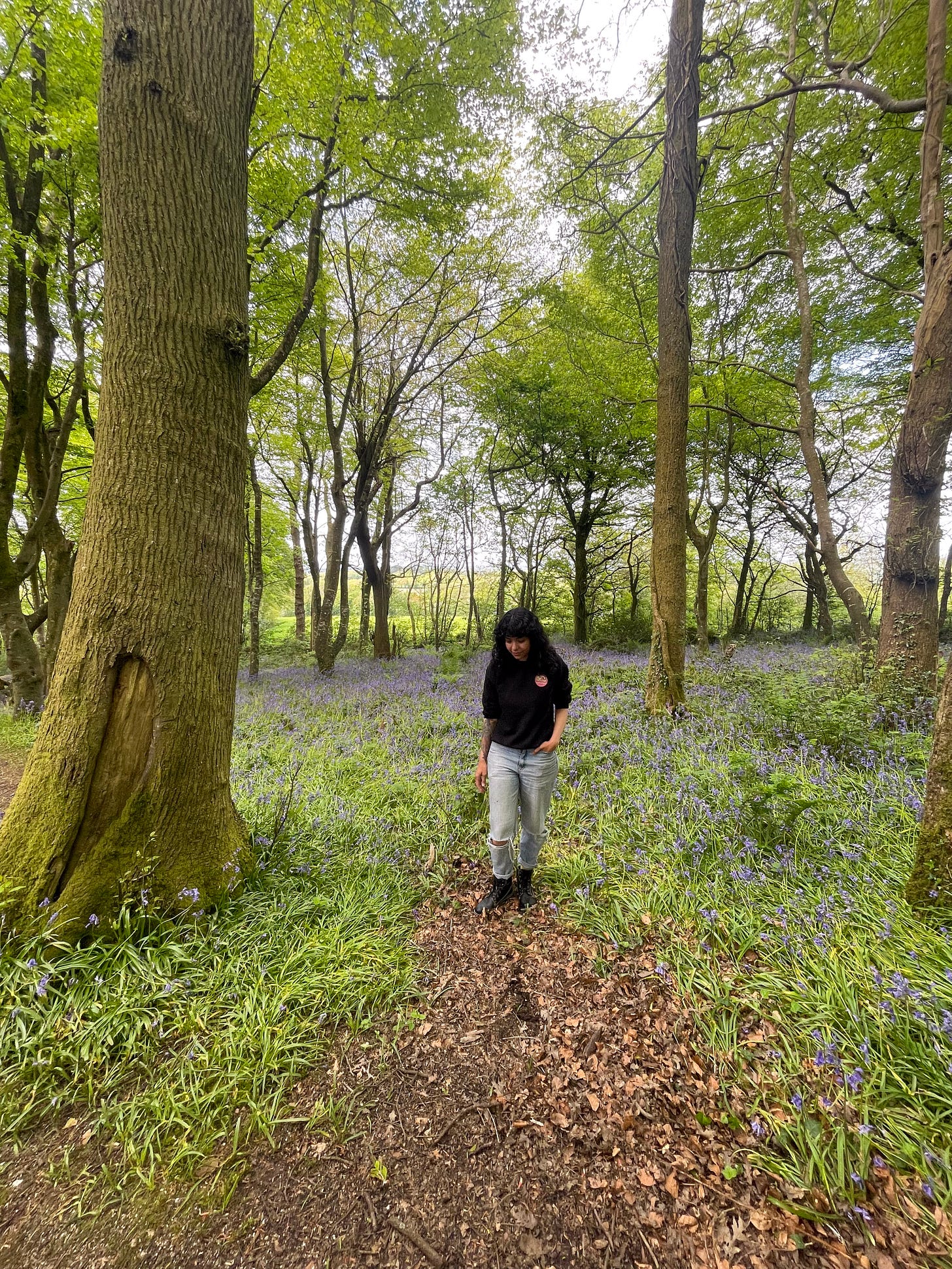I’ve sat with the question, “What do you want?” more in the first half of this year than ever before in my adult life. In January and February, I realised I was on a clear path to burn out. I was overwhelmed by what everyone else in my life seemed to want or need. That was all I could hear. My hypervigilance was in overdrive, spotting new dangers, constantly moving me into new directions.
Finally, I hit a challenge too far and my system said, “no.” I followed through with that no, painfully walking through disappointments and fears (mine and other people’s) while having to support myself to know that I would survive it all. I took the painful and humbling decision to massively reduce the self-directed education project I’d founded a year and a half earlier, in part because it was overrunning my life.
Moving into what’s come next has involved finding what I’m saying “yes” to. Coming to the end of a term of running the project in a new shape, there is a lightness that has come from knowing that I am doing this because I want to and not just because I feel I have to.
There are lots of things that have to be done regardless of whether we want to do them or not but some of us are prone to taking up more than our share. This comes from such a loving place within us: we see that the need is great. However, we need to follow this awareness by asking whether we’re the ones to answer that need, and if so, which part of it.
In my case, I had to recognise that understanding why I was doing the work I was doing, and reducing my workload to a size and shape to match, were key to sustainability.
I’m not an educator. When I hear people call education their life’s work, it doesn’t resonate. Yet I’m alive when holding the conduit for young people to share their thoughts and feelings with each other, and find form for these things as they create together.
And that’s because I’m an artist. Creative practice requires consent and self-direction. It makes space and offers form for feelings. It cannot be separated from learning. This work of supporting others’ creative process fits with my wider work and way of being in the world.
In trying to answer the question of what everyone else wanted and needed, I devalued and quashed the gifts that I bring. I may have discovered that I’m capable of a great many things but there is much more flow when I’m not trying to do the many but the few that are mine to do.
The benefits of having moved in this direction are clear - the work is much more supportive, confidence has grown, skills and interests are developing, relationships are deepening.
So I wonder why it took me so long to get here. I think it was that I didn’t stop to ask what I really wanted. What I needed to get from it. Even writing that now feels a little selfish and the idea that desire can offer direction feels too “easy”.
In the context of the work I’m doing, I wonder how we can invite young people to find something true about themselves if we’re not acting out of authenticity. And how can we expect to keep going if there is no ease?
It may be that you need to ask (along with me!) whether your caregiving role has conditioned you to devalue what else you bring. Asking what we want can help us start to identify what we bring.





Adele, this really resonates. That figuring out of what we actually want can be so hard because we have so little practice at asking that question of ourselves. I think there's a cultural element there and definitely can be a religious one too from my conversations with my clients - many of them resist even being allowed to ask the question because it feels selfish. But how freeing and empowering it can be to follow the trail of desire. Thank you for sharing so openly. I'm so glad you're finding a better rhythm.